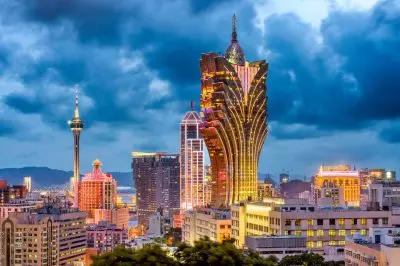 Macau is well-known as the most popular gambling hub on a global scale and the Philippines is constantly developing its gaming offerings. However, in a recent report issued by the US Government, it became clear that there are certain shortcomings when it comes to Anti-Money Laundering regulations which have been ongoing for some time now.
Macau is well-known as the most popular gambling hub on a global scale and the Philippines is constantly developing its gaming offerings. However, in a recent report issued by the US Government, it became clear that there are certain shortcomings when it comes to Anti-Money Laundering regulations which have been ongoing for some time now.
Being in the spotlight of the gaming industry and striving to provide competitive gambling offerings to its players, Macau has reached the status of a preferred gaming location for many enthusiasts from mainland China and all four corners of the world. The Philippines also work towards constantly improving its casino options, however, the recent report highlighted some of the deficiencies which have been a regular occurrence. Casino proxy gambling is not a new term in the gambling world, as this is a practice that allows people who are willing to participate in gambling activities to do so without the need to be physically present at the said location.
According to the United States Department of State’s International Narcotics Control Strategy Report, the Philippines’ casino industry had been turning a blind eye to the practice which is considered a flaw. It involves the placement of bets on behalf of a player who is not present at the said casino facility. This practice could be classified as a deficiency of the anti-money laundering system of the country and puts its integrity at a serious risk. Among the other issues stated by the authority are the relatively large single-transaction reporting threshold which amounts to $100,000.
AML Issues with the Two Gambling Hubs
 For reference, the financial institutions in the Philippines are obliged to give reports for every single transaction which trespasses the $10,000 mark, while casinos have to do that only once the amount has jumped above $100,000. The US and many other countries around the globe also opt for the $10,000 threshold for both casino developers and financial institutions. Even though at this point the existing Anti-Money Laundering Act which was voted in 2001 has added casino operations to its area of monitoring, the said practices are putting its efficiency under a lot of scrutiny.
For reference, the financial institutions in the Philippines are obliged to give reports for every single transaction which trespasses the $10,000 mark, while casinos have to do that only once the amount has jumped above $100,000. The US and many other countries around the globe also opt for the $10,000 threshold for both casino developers and financial institutions. Even though at this point the existing Anti-Money Laundering Act which was voted in 2001 has added casino operations to its area of monitoring, the said practices are putting its efficiency under a lot of scrutiny.
There is also the issue with casino junkets which operate at the moment. Apparently, these companies are not covered by the said AML act. Moreover, non-cash transactions are also not included in the AML reports. Probably one of the main questions was the fact that the Philippine Amusement and Gaming Corporation is both a regulator in the field which gives casino licenses to gambling companies and an operator itself, which could lead to conflicting situations. In the meantime, Macau was mentioned with its organized crime groups which make the AML efforts more vulnerable.
Junket operators there also provide a certain level of anonymity to the transactions and there is also the lack of currency and exchange monitoring making the control harder. The report also gave its guidance in the form of advice to the Gaming Inspection and Coordination Bureau. At the moment the lowest transaction which should be reported should amount to $62,640. However, the gambling hub should opt for a lower sum and introduce a $3,000 threshold for casino facilities, which will make it equal to other countries.